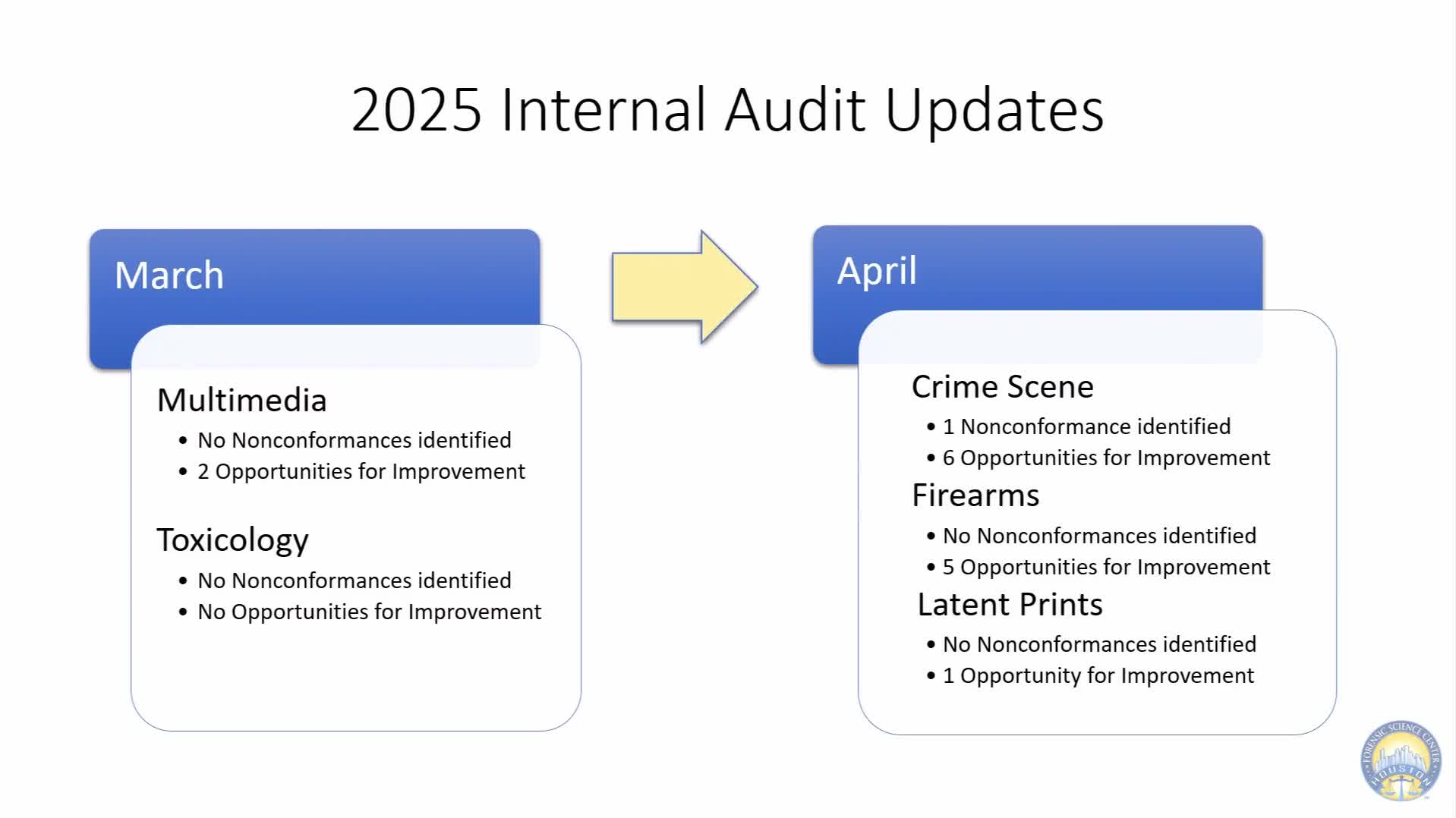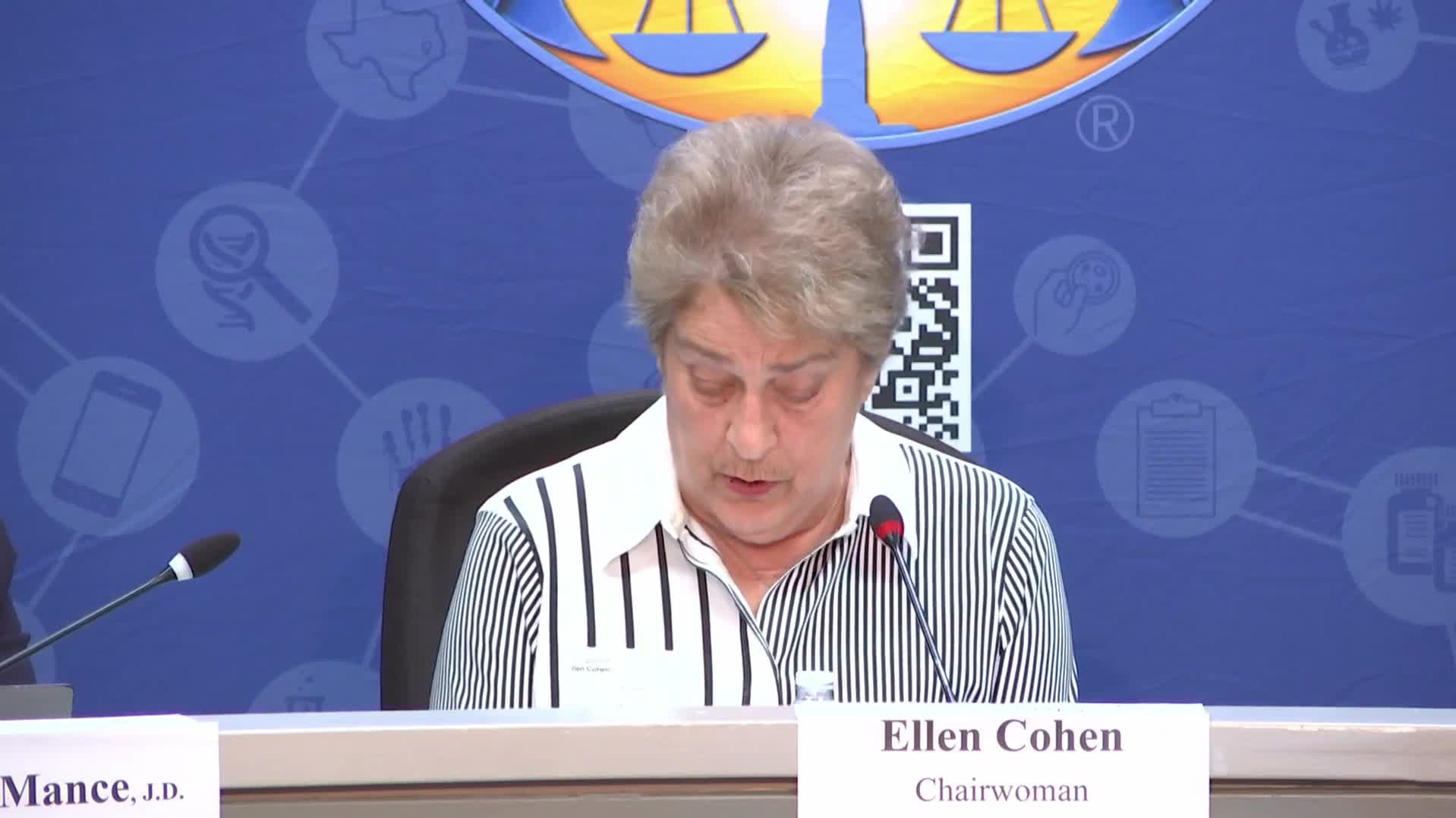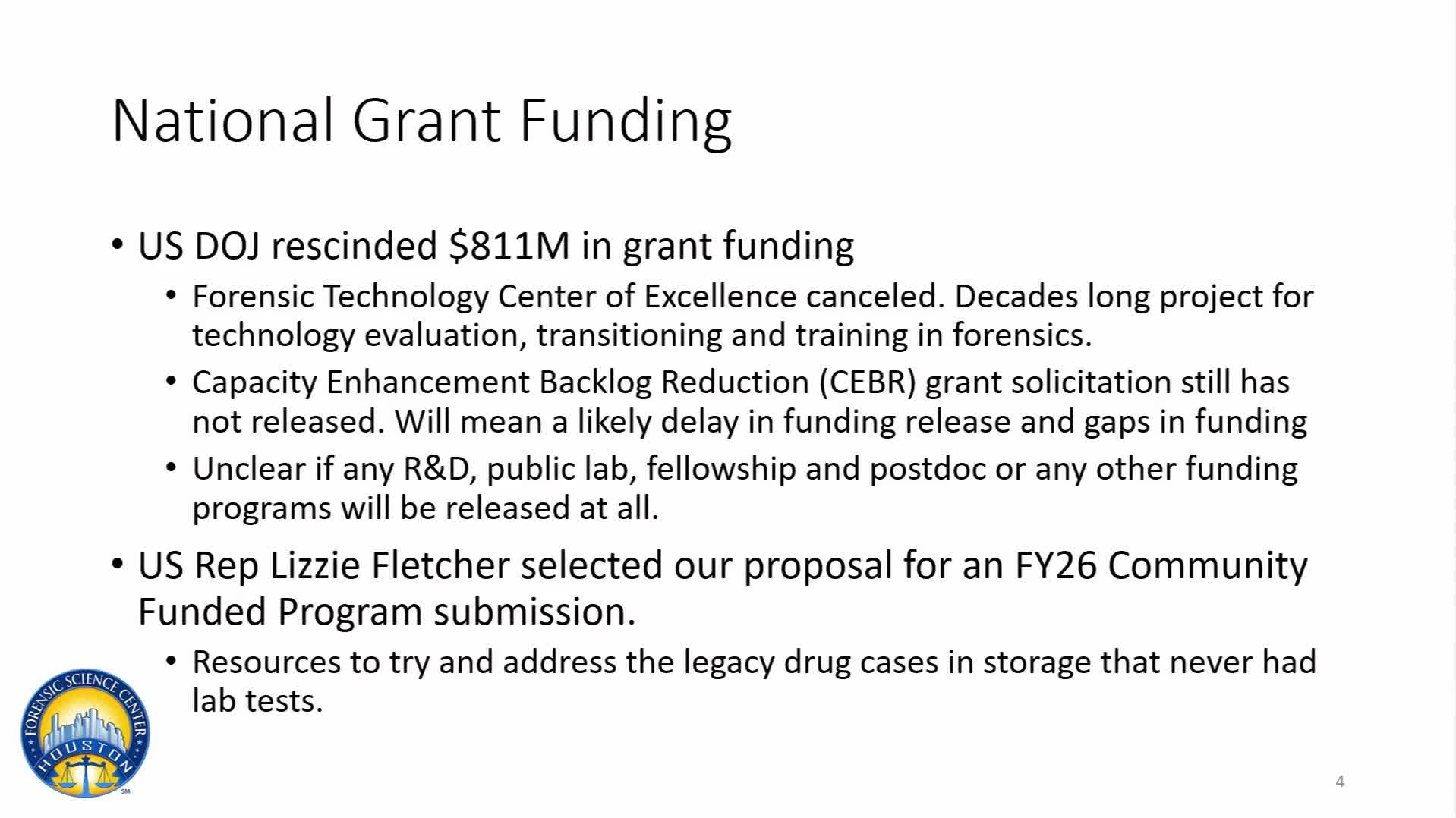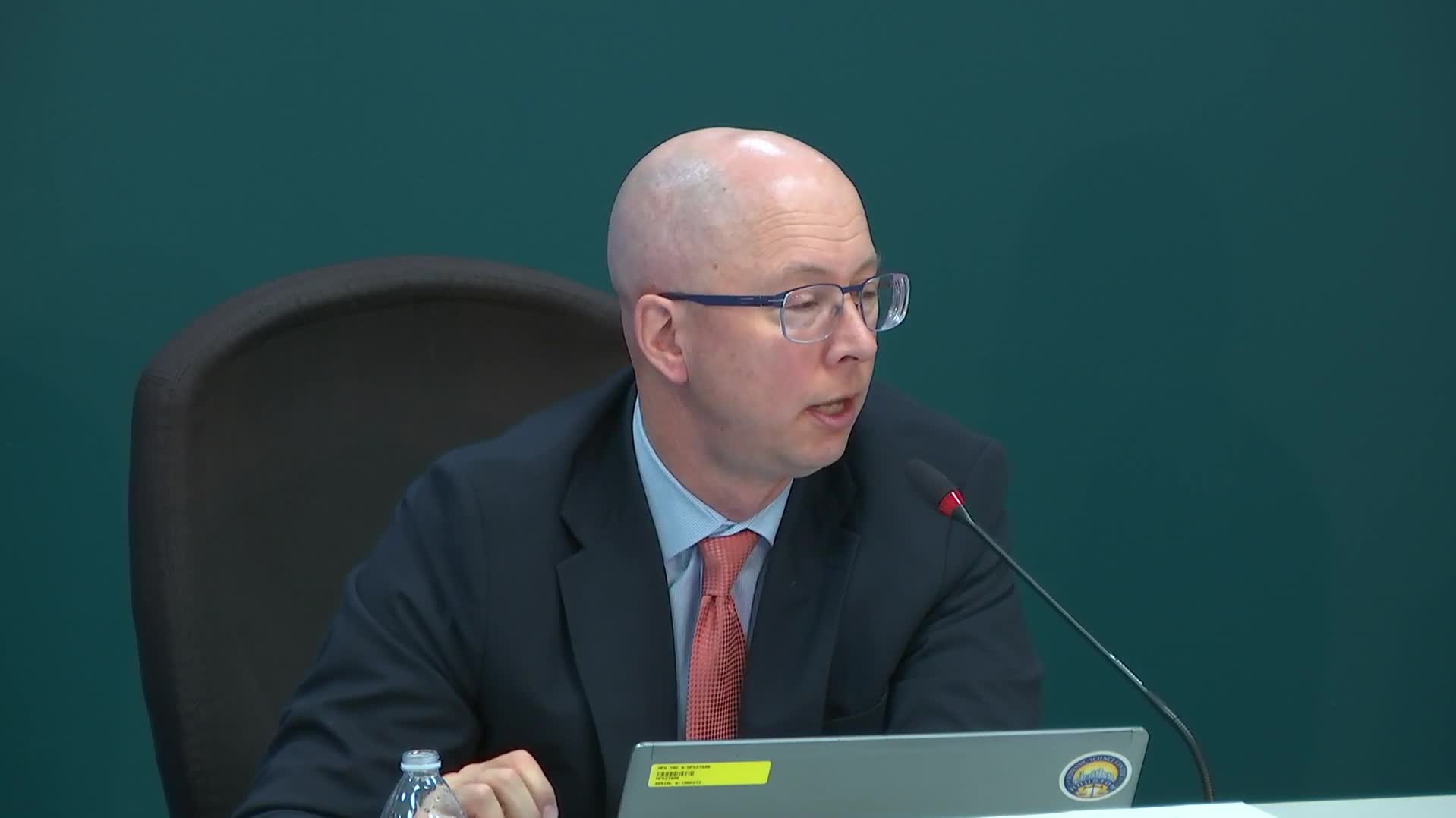Article not found
This article is no longer available. But don't worry—we've gathered other articles that discuss the same topic.

HFSC outlines upcoming accreditation surveillance, disclosures and training issues

HFSC board approves annual corporate officers and reappoints vice chair

HFSC warns national grant delays and outlines local proposals to address drug-case backlog

